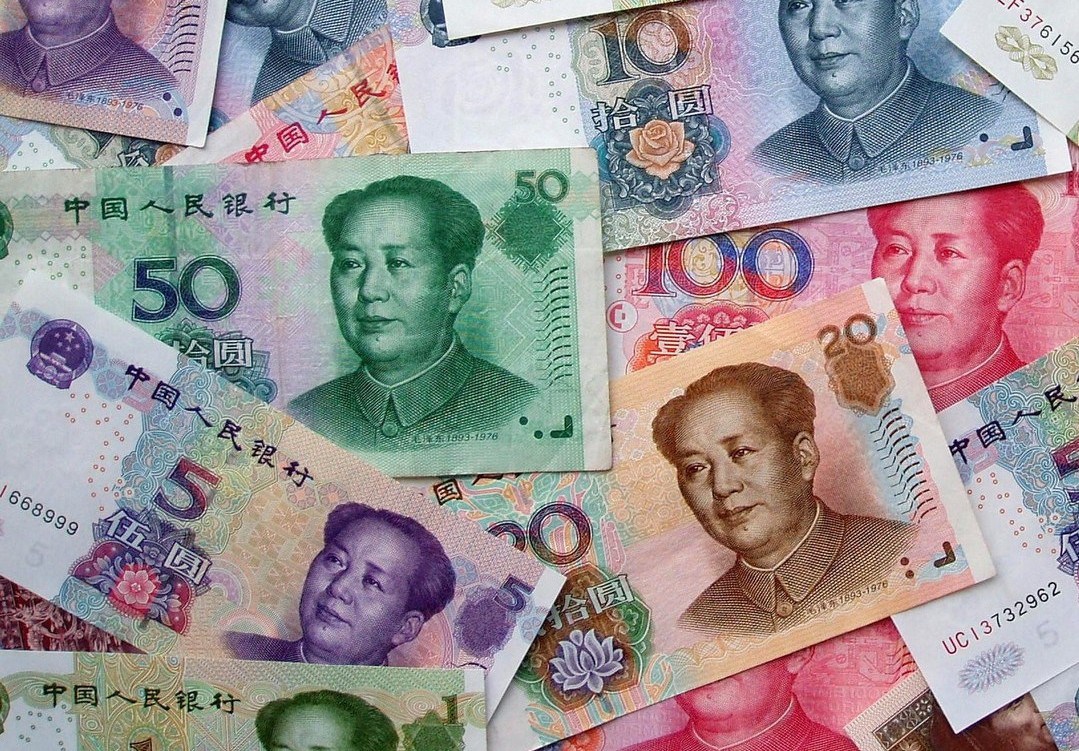Chinese Players in AI Chip Design

Chinese Players in AI Chip Design
Huawei/Hisilicon
There is a broad consensus among AI chip experts that the only Chinese company with sufficient design and engineering talent to compete head-on with global US industry leaders is Huawei, due to its subsidiary HiSilicon. HiSilicon is China’s national champion in IC design; rapid growth has made the company the largest chip designer in Asia and number four globally. But the size advantage goes further. As an affiliate of the Huawei group, HiSilicon also benefits from the mother company’s huge market and its wel lestablished relationships. Huawei is the world’s largest supplier of telecommunications network equipment and the second-biggest maker of smartphones. Huawei’s Global Innovation Network includes, in addition to at least eight major R&D centres in China, 10 overseas R&D centres in Europe and five R&D centres in the United States.
HiSilicon’s leading AI chips are Ascent 310 and Ascent 910 All of HiSilicon designs thus far are not sold in the open market; they are intended only for inhouse use. Chinese AI companies such as SenseTime as rumours may be switching to HiSilicon AI chips in response to US technology restrictions. If confirmed, this would indicate that US technology restrictions are, ironically, helping HiSilicon to gain new markets outside the Huawei family.
Baidu And Alibaba Enter The Game
Two other large Chinese AI companies have entered the AI chip race — Baidu in July 2018, and Alibaba in September 2018.
Baidu Kunlun
Baidu’s Kunlun AI chips are designed both for the company’s autonomous vehicles and for data centres and come in two versions —for algorithm training and for inference. Baidu has partnered with Intel to optimize Intel’s Xeon processor to run Baidu’s own machine-learning framework, called PaddlePaddle. That partnership is now on hold due to the US technology restrictions.
Alibaba
Alibaba has formally established a semiconductor business operation to design AI chips. Alibaba subsidiary THead (also known as Pingtouge Semiconductor) collaborates with the parent company’s Machine Intelligence Technology Lab, to design AI chips. Focused on customized AI chips (i.e., ASICs), different versions are reported to be under development for autonomous vehicles, smart city planning and logistics. In April 2019, Alibaba acquired CSky Microsystems, a successful IC design company, also based in Hangzhou, Alibaba’s hometown. On August 21, 2019, Alibaba announced a specialized AI-FPGA chip for speech synthesis, called Ouroboros. Alibaba claims that the Ouroboros FPGA is the industry’s first AI FPGA chip design dedicated to speech synthesis algorithms, which can increase the computational efficiency of speech generation algorithms by more than 100 times.
China’s AI Chip Unicorns
In 2017, the floodgates of government and venture money had been thrown open for start-up funding. This was very different from Silicon Valley, where, as one expert put it, “investors flee at the mention of chip investment”. The main drivers for these initial investments in Chinese AI chip start-ups was a perception of lower chip development costs in China, due to lower engineering salaries, and because fabrication did not initially require costly bleeding-edge process technologies below 20 nm.
This initial AI chip fever was concentrated around four clusters: Beijing, Shenzhen, Shanghai and Hangzhou. In each of these locations, local governments followed the direction laid out by AIDP, competing against each other in providing incentives and other support. In our interviews, we found that the founders of the more promising of those AI chip start-ups typically had studied at leading research universities in both China and the United States. They also sought to cultivate close contacts with both the central and the local governments. In essence, the typical start-up business model was focused on monetizing intimate knowledge of highly specialized leading-edge IC design techniques with a narrow focus on a handful of high growth AI mass applications.
An important weakness of Chinese AI chip start-ups is that they have largely focused on inference, neglecting the training of algorithms, which is technologically much more demanding and remains dominated by US firms, especially Nvidia’s GPUs. An additional weakness is that China’s AI chip design companies have focused primarily on the rapidly growing demand for surveillance applications, especially for face identification, pedestrian tracking and crowd monitoring.
This narrow specialization has set China’s AI chip start-ups apart from the United States, where two-thirds of the start-ups are focused on cloud software and services, leveraging the easy development and powerful ecosystem effect of cloud services, provided by Amazon AWS or Microsoft Azure, the global industry leaders.
Cloud-centric AI chip start-ups are still rare in China, perhaps reflecting the negative effects of the “Great Firewall.” By blocking access to Google, Facebook and other global digital platform leaders, the Great Firewall has enabled companies such as Tencent, Alibaba and Baidu to build up their own cloud services industry in China. But this has come at a heavy cost, delaying the development of China’s infrastructureas-a-service (IaaS) public cloud market.
This is changing — China’s IaaS market is expanding now at a faster pace than in other countries. After posting 86 percent year-on-year growth in 2018 to become worth $4.65 billion, China now has the world’s second-largest public cloud IaaS market (CGTN 2019). However, Amazon, followed by Microsoft, Alibaba, Google and IBM, continues to dominate the global cloud services market (Gartner 2019). Of the more than 400 worldwide data centres, 147 are run by Amazon, Microsoft and Google (Hwang 2019).
In short, China’s approach to “infant industry protection” in internet services has produced conflicting results. By blocking Google and Facebook from the Chinese market, the government has created an “online parallel universe” for Alibaba, Tencent and Baidu. This divided market for cloud services may now constrain China’s efforts to broaden the specialization of Chinese AI chip start-ups beyond vision and speech recognition into cloud server applications.
China’s Leading AI Chip Unicorns
China’s most promising AI chip unicorns have received massive support from the government as well as from venture capital investors. On the demand side, the government is also an important customer. As a result, some of these new AI chip players have rapidly developed their technological and management capabilities. As Huawei now faces increasing restrictions on access to US technology, the companies discussed below are likely to play an important role in strengthening China’s AI chip ecosystem.
DeePhi
DeePhi was founded in 2016 by a group from Stanford and Tsinghua Universities, and has raised around $40 million in investment. The company specializes in neural networks, and to this end has two AI chip architectures that are pursuing both vision and speech applications. Aristotle is designed for video and image recognition, and uses convolutional neural networks, while Descartes is intended for speech recognition.
In July 2018, the company was acquired by Xilinx, one of America’s two global leaders in the FPGA market.112 Xilinx’s main motivation for acquiring DeePhi was to gain access to a team of experienced experts in this critically important technique. This created quite some excitement in China’s AI chip community. Some observers argued that, in contrast to the usual narrative in the United States of China acquiring US technology, the acquisition of DeePhi by Xilinx provides an example of a leading US AI chip design company acquiring Chinese technology, as embodied in the intangible knowledge accumulated by DeePhi’s Chinese engineers. However, there are reasons to be skeptical. According to Sun Yongjie, a prominent Chinese technology blogger, DeePhi’s deep learning processors are entirely built on Xilinx FPGA frameworks: If DeePhi Tech ever broke away from Xilinx’s FPGA platform, it would be completely cut off from all sustenance.
Cambricon
Beijing Cambricon Technologies was founded in 2016 by Chen Tianshi, a professor at the Institute of Computing Technology at the Chinese Academy of Sciences. The company started out as a supplier of specialized AI chip design to HiSilicon, by licensing its Cambricon-1A design to HiSilicon’s Kirin 970 chip. However, in 2018, Cambricon lost Huawei’s partnership. During the Huawei Connect conference in October 2018, Huawei introduced its own Da Vinci AI architecture and new Ascend family of chips, Ascend 310 and Ascend 910, both of which were developed by Huawei itself. According to Zhi Jun, rotating chairman of Huawei Cambrico’s IP is quite good, but it is insufficient as we require chips that can support all AI application scenarios. We want to have a system that can provide both massive computing capacity and low-power consumption.
Despite this setback, Cambricon has raised several hundreds of millions of US dollars in a June 2016 series B funding round, increasing its valuation to $2.5 billion. The funding was led by SDIC Venture Capital, a subsidiary of state-owned investment holding group China Reform Holdings Corp Ltd. Cambricon’s long list of big-name investors includes Alibaba, Lenovo, CICC Capital, CITIC Securities Goldstone Investment Fund, TCL Capital and a Chinese Academy of Sciences fund. This funding round made Cambricon a “unicorn.”
In addition to the Cambricon-1A chip, Cambricon designs core processor chips (called MLU100) for intelligent cloud servers, intelligent terminals and smart robots.. Like Huawei, Alibaba and Baidu, Cambricon’s MLU100 thus critically depends on secure access to TSMC foundry services MIT’s prestigious Lincoln Laboratory has included Cambricon’s cloud server chips in the 2019 Survey of AI chips This has added credibility to Cambricon’s AI chip design business. China’s main server companies, Lenovo and Sugon, are using Cambricon’s chips.
Horizon Robotics
Horizon Robotics (HR) is a deep learning AI chip design house, founded in 2017 by Yu Kai, who led the self-driving car project at Baidu. HR’s co-founding team combines capabilities in algorithms, software, hardware, and chip development.
With 220 people, HR seeks to develop AI chips across a broad front for vision systems, including smart home, gaming, voice-vision integration and self-driving cars. It also has adopted a tight hardware-software integration strategy for more complete and efficient solutions. Over time, it has increasingly focused on imaging and facial recognition algorithms.
In 2015, HR introduced its BPU (brain processing unit) architecture for inference acceleration.117 HR claims that its Sunrise 1.0 processor is superior to Nvidia’s TX1 in power consumption and imaging performance. The company’s Journey 1.0 processor is fabricated by TSMC, while its Journey 2.0 processor is based on Intel’s FPGA.
The response from investors provides an indirect confirmation of HR’s achievements.
Since 2015, the company has attracted substantial venture capital investment from Morningside Venture Capital, Hillhouse Capital, Sequoia Capital, GSR Ventures, Linear Venture, Innovation Works, ZhenFund, Wu Capital, Tsing Capital and Vertex Ventures, as well as from Yuri Milner, a venture capitalist from Silicon Valley.
In February 2019, HR had raised $600 million, led by South Korean chip maker SK Hynix Inc. and several “first-tier” Chinese automakers, while other participants included China Oceanwide Capital, CITIC Securities’ One-Belt-One-Road Fund, and Minsheng Capital. And in November 2019, HR raised up to $1 billion in a funding round that will value it at between $3 billion and $4 billion.
Finally, in response to the intensifying US technology restrictions, companies like HR are now benefiting from increasing government support. Ironically, the US technology war against China has provided a powerful catalyst for Chinese AI chip companies to move ahead with their own designs, no matter the costs.
Yuntian Lifei/Intellivision
Yuntian Lifei was founded in 2014 by a team of doctorate degree holders who had returned to Shenzhen from the United States. The company is focused on edge-based AI chips for visual recognition and security monitoring systems, a rapidly growing market in China. The company claims that its AI processors were developed inhouse, in addition to supporting software and big data analytics. It is reported that the company cooperates with Huawei on an AI vision platform.
Abstract from a special report from the Centre for International Governance Innovation (Canada) “COMPETING IN ARTIFICIAL INTELLIGENCE CHIPS, China’s Challenge amid Technology War” . This work is licensed under a Creative Commons Attribution —Non-commercial — No Derivatives License. To view this license, visit (www.creativecommons.org/licenses/by-nc-nd/3.0/). This article was originally published in the China Agenda and is written by Dieter Ernst.
Related posts

